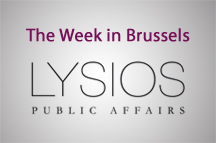 The European Council of 19-20 October has reviewed the progress made in the Brexit negotiations and decided whether they have been sufficient to start discussing the future relationship with the UK. Considering the results of the last round of negotiations and given President Jean-Claude Juncker and Prime Minister Theresa May’s agreement that the negotiations "should accelerate over the months to come", a positive conclusion was unlikely. Nevertheless, the EU27 have sent a first signal of flexibility by approving the start of "internal preparatory discussions" for their post-Brexit relations with the UK. This is not a mandate for negotiating but a first move in this direction.
The European Council of 19-20 October has reviewed the progress made in the Brexit negotiations and decided whether they have been sufficient to start discussing the future relationship with the UK. Considering the results of the last round of negotiations and given President Jean-Claude Juncker and Prime Minister Theresa May’s agreement that the negotiations "should accelerate over the months to come", a positive conclusion was unlikely. Nevertheless, the EU27 have sent a first signal of flexibility by approving the start of "internal preparatory discussions" for their post-Brexit relations with the UK. This is not a mandate for negotiating but a first move in this direction.
The task is enormous and the sooner the EU27 will start, the better. Regarding access to the internal market, as respective positions stand at present, the United Kingdom will be considered by the EU as a “third party”, which means there will be customs controls and maybe tariffs, at least for a transition period. Trade in high added value products would not be disturbed, but it would disrupt commodities and low margin products. In addition, the introduction of red tape can only slow trade and disturb the complex value chains that have existed in some industries (automotive, aeronautics, etc.) for the last 30 years.
 In the field of research and innovation (R&I), strong links exist between British and European teams, both at the academic and industrial levels. These links are exemplified by British participation in many projects financed by the EU R&I framework programmes, in particular by the current one Horizon 2020. Yet, it appears that the British performance to the last calls for proposals has significantly decreased, mainly because their European partners are now reluctant to include them in long term projects. However the UK is and will remain a major actor in the European R&I landscape and it would be mutually beneficial to maintain the previous links through an association agreement. The preparation of the next R&I framework programme (FP9) due to be launched in 2021 is already underway. Two recent reports Mrs Cabezon Ruiz’s parliamentary report and Mr Lamy’s report published in June and July advocate for doubling the R&I budget. The FP9 proposal should be presented in the summer of 2018 in the context of the negotiations of the next Multiannual Financial Framework and it would be important to know whether or not the UK can keep links with the FP9.
In the field of research and innovation (R&I), strong links exist between British and European teams, both at the academic and industrial levels. These links are exemplified by British participation in many projects financed by the EU R&I framework programmes, in particular by the current one Horizon 2020. Yet, it appears that the British performance to the last calls for proposals has significantly decreased, mainly because their European partners are now reluctant to include them in long term projects. However the UK is and will remain a major actor in the European R&I landscape and it would be mutually beneficial to maintain the previous links through an association agreement. The preparation of the next R&I framework programme (FP9) due to be launched in 2021 is already underway. Two recent reports Mrs Cabezon Ruiz’s parliamentary report and Mr Lamy’s report published in June and July advocate for doubling the R&I budget. The FP9 proposal should be presented in the summer of 2018 in the context of the negotiations of the next Multiannual Financial Framework and it would be important to know whether or not the UK can keep links with the FP9.
At the legal level, some British companies have adopted the statute of the “European company” promoted by the ASEP (Alliance for Societas Europaea Promotion). For branding purposes and to ensure staff’s participation to the management of the company as well as in terms of mergers, divisions and transfer of seat, this statute is interesting for companies strongly established on both sides of the Channel but it will become obsolete when Brexit happens.
These are just three examples of how Brexit will impact various fields but they give a hint of the number of issues to be taken into consideration during the negotiations.












